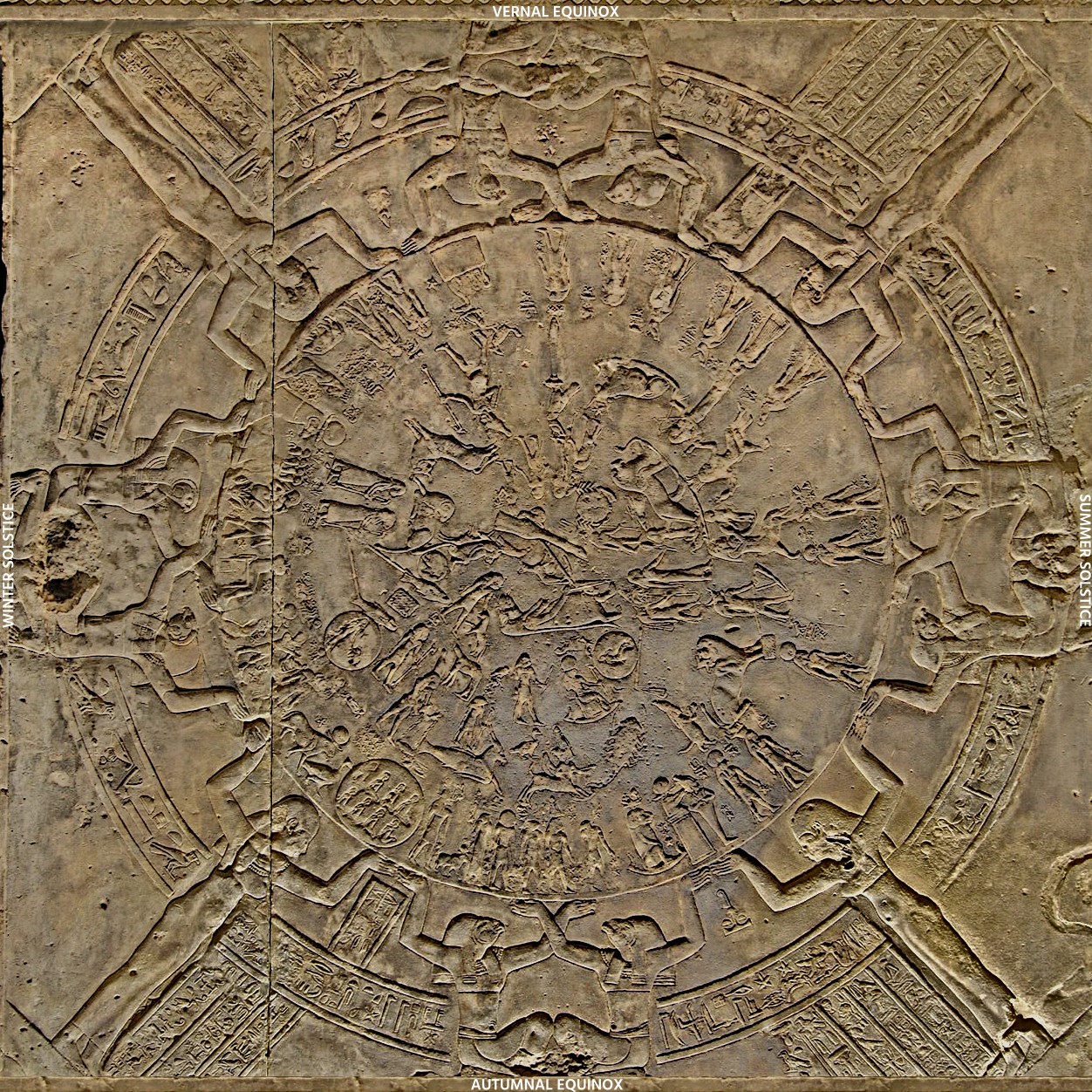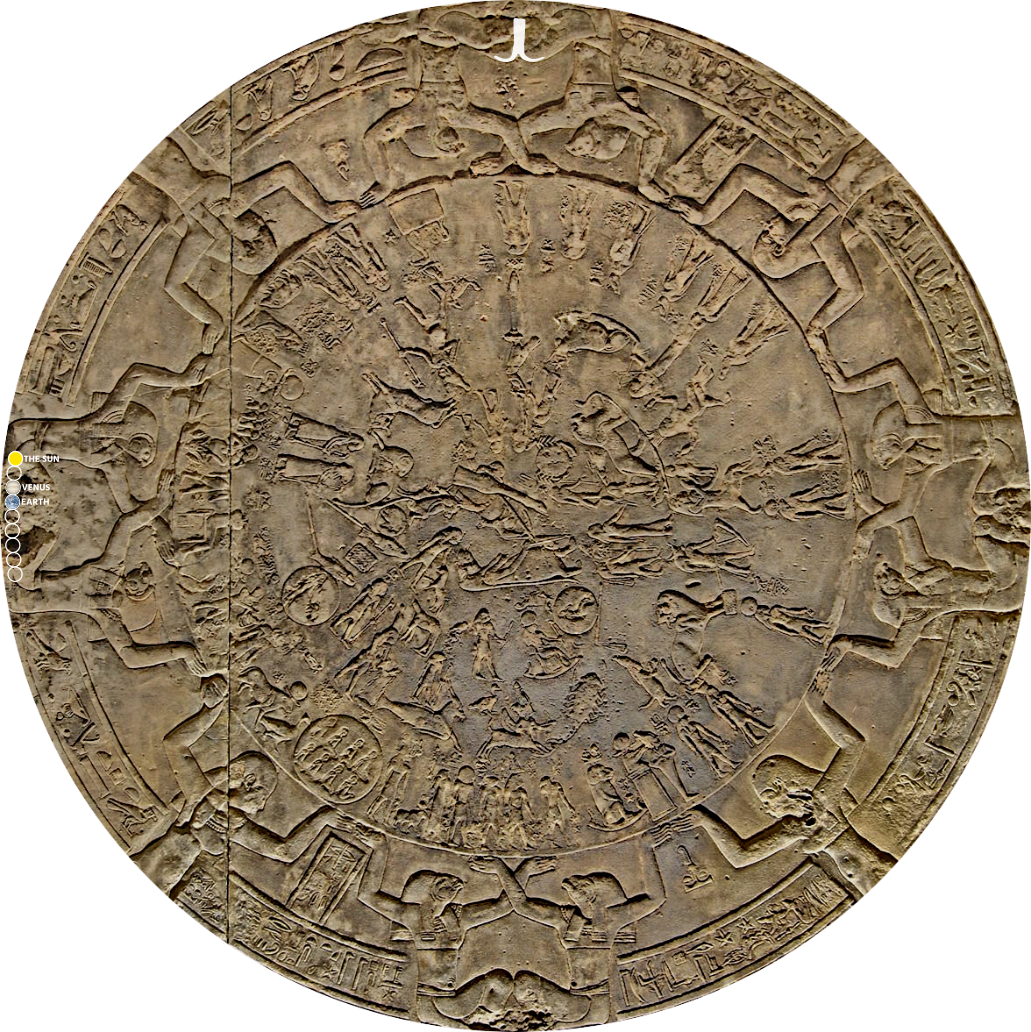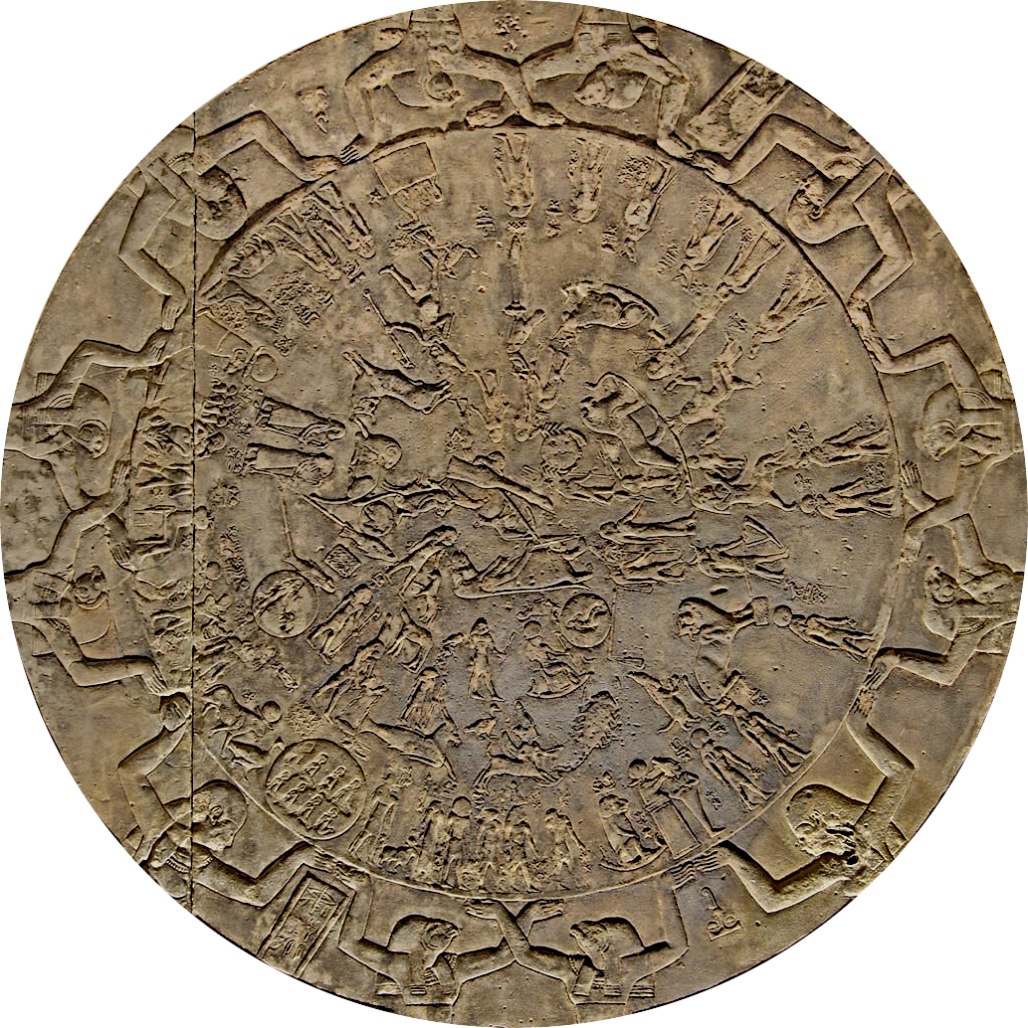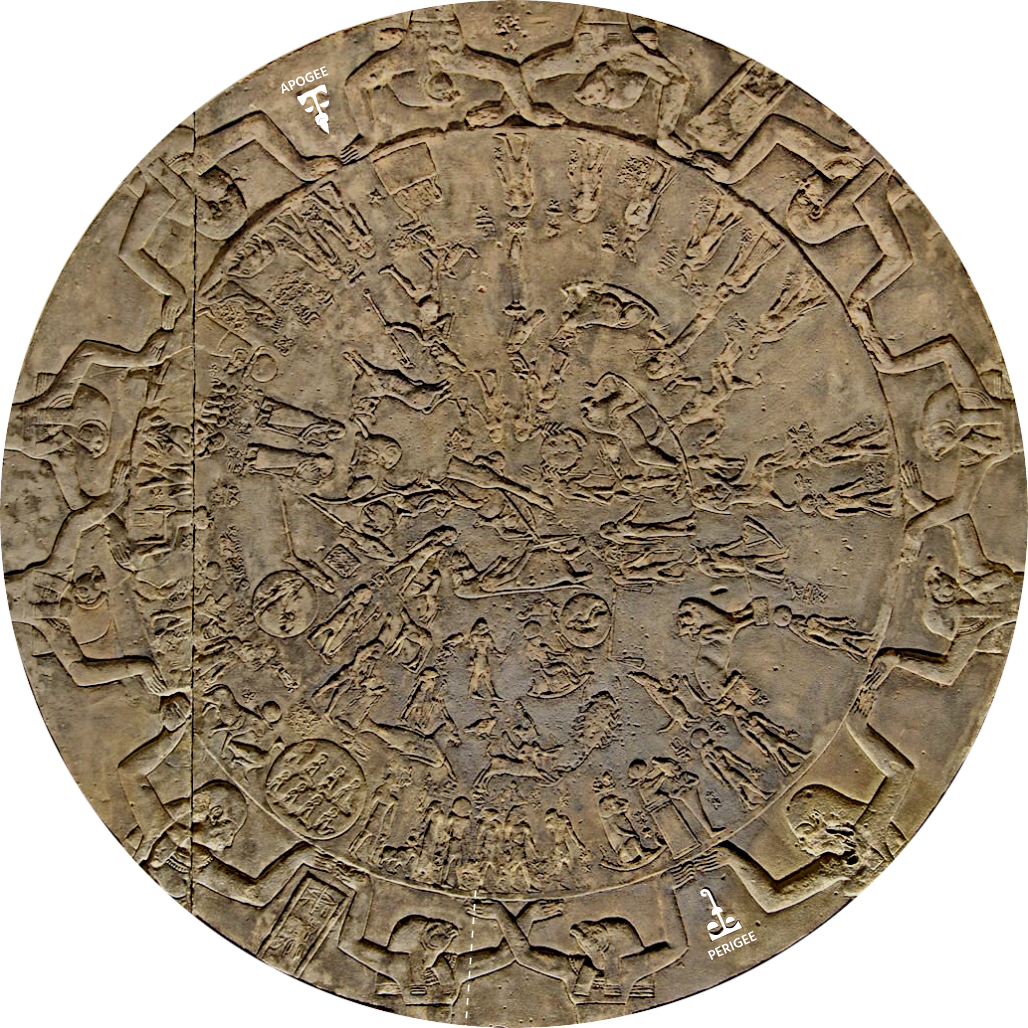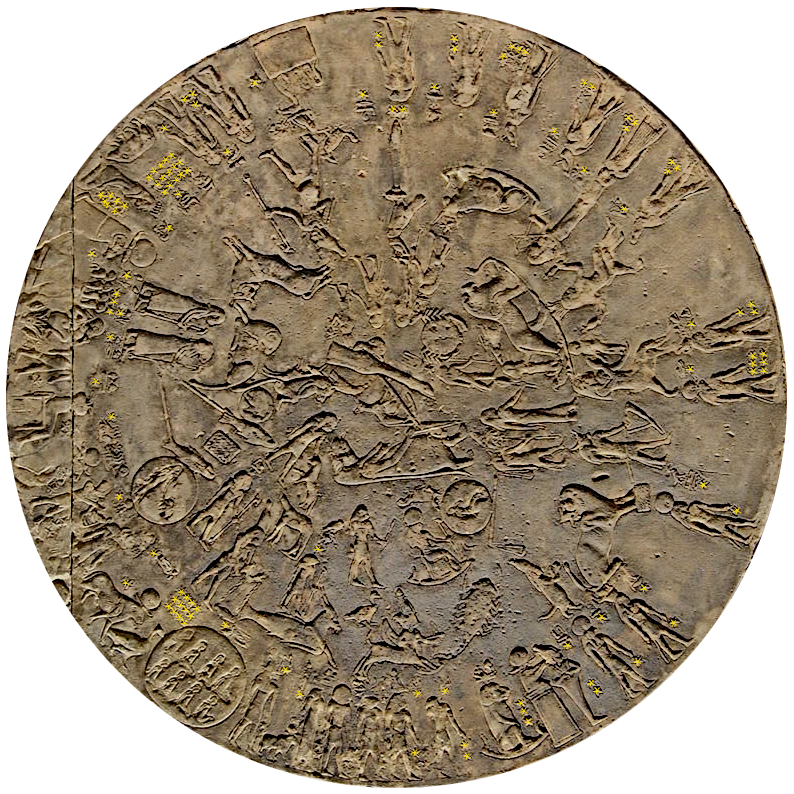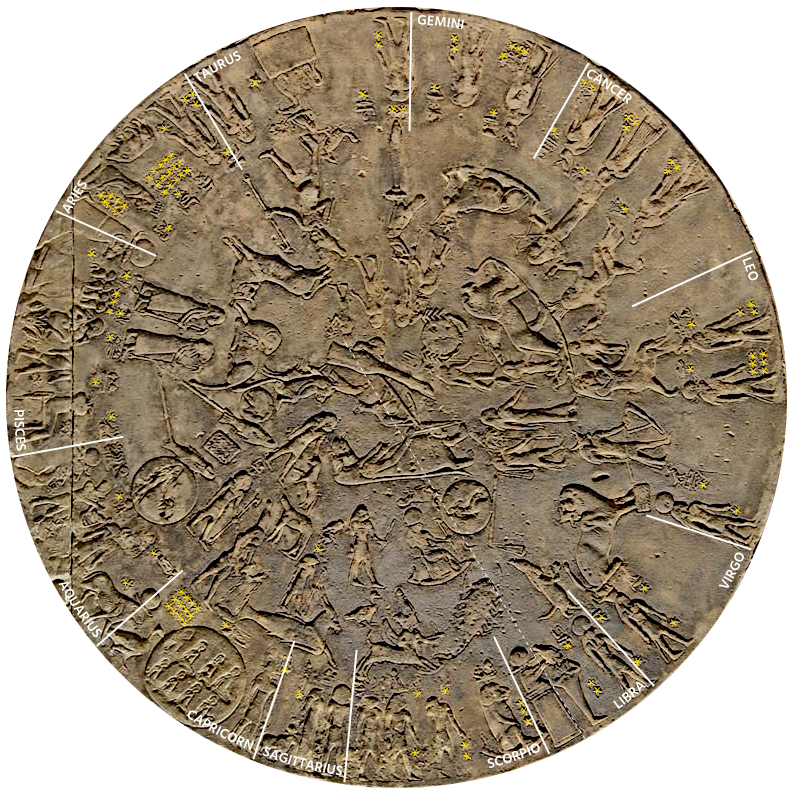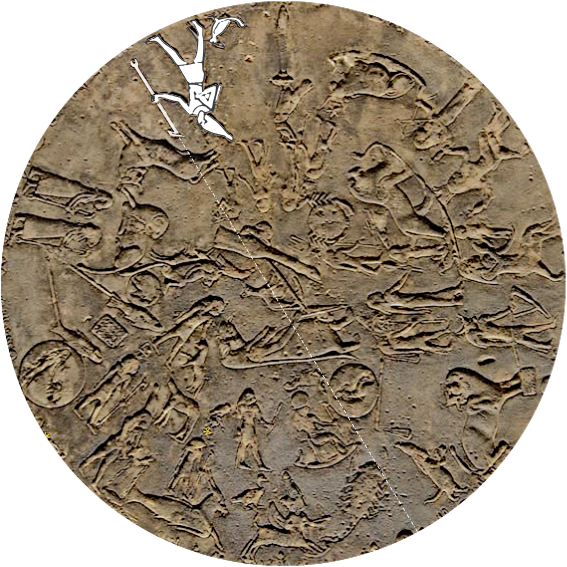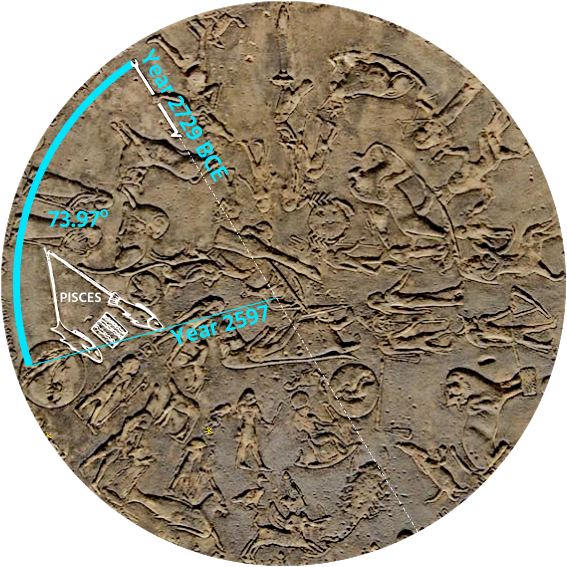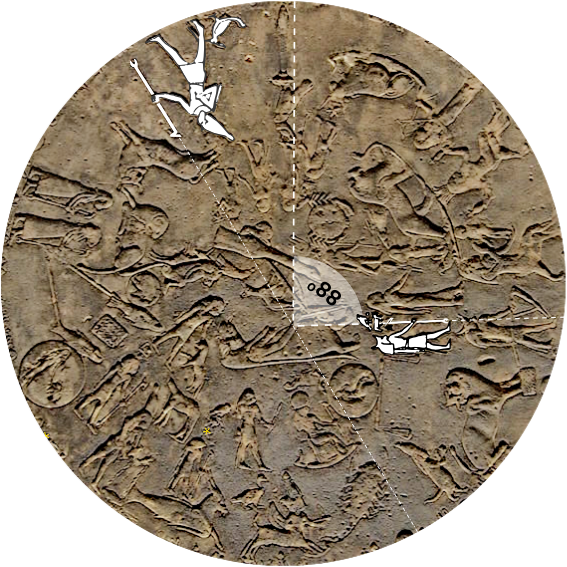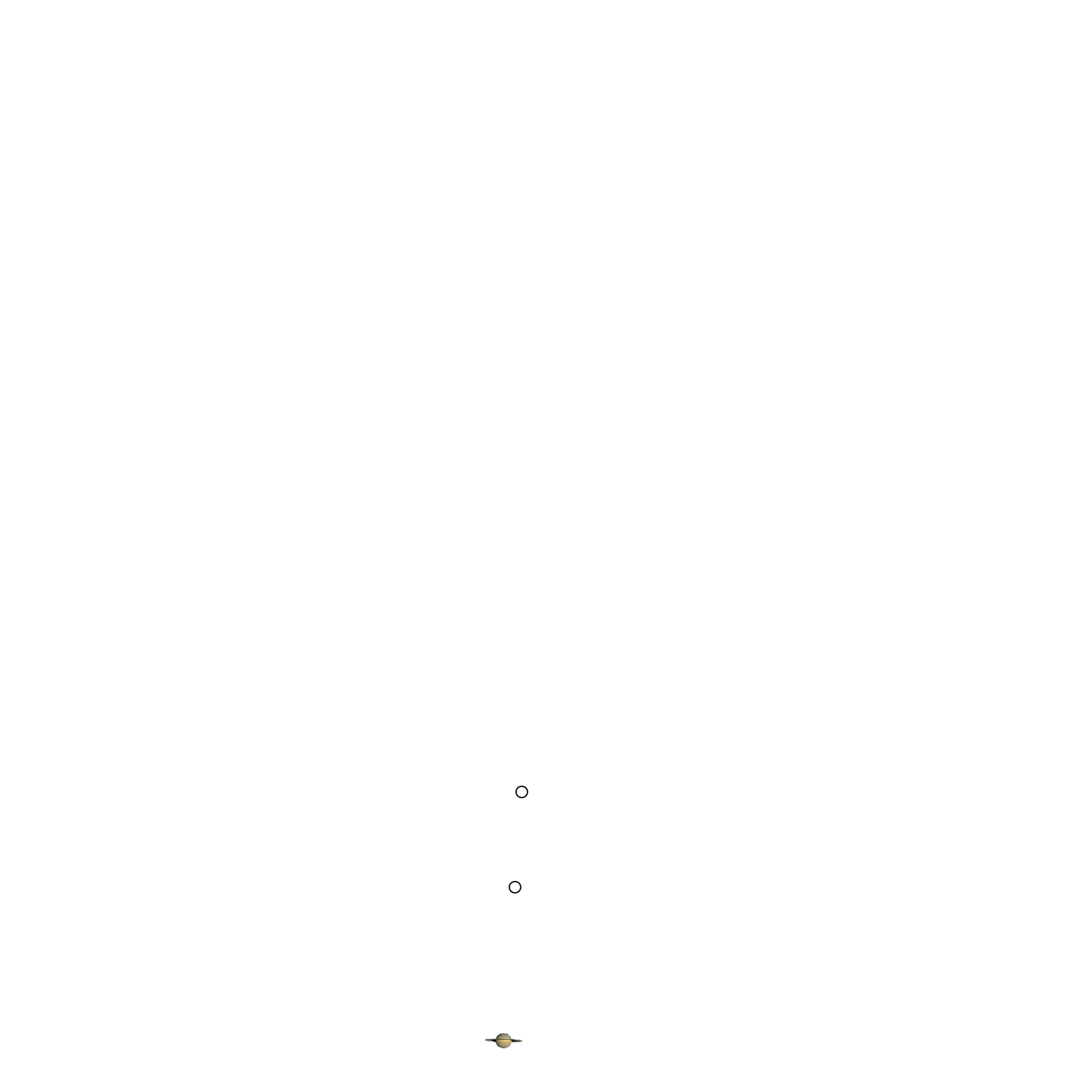The Dendera Zodiac
Saturn
Page controls
This website animates the sculpture using the NASA DE441 and DE431 ephemerides, which contain the highly accurate positions of the solar system planets, as its data sources for the angular rotations that
are applied to the sculpture's component parts. This data is available in the right panel of this page in the 'technical data' tab. The animation can be reset at any time by clicking the button below and
the zodiac carvings on the inner circle of the sculpture can be viewed at any time by clicking on the other button.
(Click and hold)
This particular webpage, on the right side panel, explains the sculpture's Saturn model and follows on from the previous page which explained the Venus system.
It is advised to read that page before reading this one.
Saturn carving
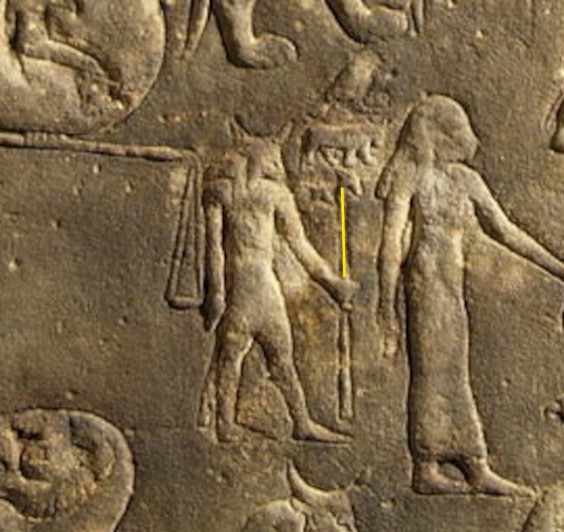
Explanation
Technical data
Saturn
Zodiac signs Gemini and Virgo
The sculpture of the God that represent Saturn has been identified through scholarly research and its identification is not under question. It is shown on the
left panel of this page in detail and is highlighted in white on the central circle of the main dynamic illustration.
The geometric alignment line of this God is shown on the left panel image by the yellow line. On the main image the dashed alignment line is shown coming from the top of the God's staff and at the point where this line intersects with the alignment line coming from the principal God's staff it is rotated anticlockwise by exactly 88 degrees. This is the angle that was defined on the Moon page when the zodiac was calibrated using the Moon's astronomy data and on the previous Venus alignment page.
A small image of Saturn can now be added to the diagram in line with the 88 degree line and on the outer circular static frame of the carving, along with two white circles either side of the zodiac segment portion of the central carving to aid with clarity when looking at the alignments.
On the illustration the dynamic model has already been aligned so that the principal God is pointing to the Vernal equinox at the top of the outer frame, but importantly the Zodiac outer section of the inner circle has not yet been rotated into position. This is because the Gemini zodiac division line is marked out by the Saturn God's alignment line in this configuration as can be seen on the illustration.
Once this has been identified, the outer portion of the central circle can be rotated into its correctly aligned position in the same manner that was explained on the earlier page regarding the Moon.
The geometric alignment line of this God is shown on the left panel image by the yellow line. On the main image the dashed alignment line is shown coming from the top of the God's staff and at the point where this line intersects with the alignment line coming from the principal God's staff it is rotated anticlockwise by exactly 88 degrees. This is the angle that was defined on the Moon page when the zodiac was calibrated using the Moon's astronomy data and on the previous Venus alignment page.
A small image of Saturn can now be added to the diagram in line with the 88 degree line and on the outer circular static frame of the carving, along with two white circles either side of the zodiac segment portion of the central carving to aid with clarity when looking at the alignments.
On the illustration the dynamic model has already been aligned so that the principal God is pointing to the Vernal equinox at the top of the outer frame, but importantly the Zodiac outer section of the inner circle has not yet been rotated into position. This is because the Gemini zodiac division line is marked out by the Saturn God's alignment line in this configuration as can be seen on the illustration.
Once this has been identified, the outer portion of the central circle can be rotated into its correctly aligned position in the same manner that was explained on the earlier page regarding the Moon.
As can be seen in the illustration the first point in Virgo is now marked out by the Saturn God's staff, and another of the zodiac segment divisions has been
defined. The alignment can be checked by clicking on the 'Show the zodiac carvings' at the top of the left panel.
The first of the astronomy angles for Saturn at the moment of the 2729 BCE winter solstice from the NASA DE441 ephemeris can now be applied to the dynamic illustration.
The first of the astronomy angles for Saturn at the moment of the 2729 BCE winter solstice from the NASA DE441 ephemeris can now be applied to the dynamic illustration.
The second of the astronomy angles that defines the periapsis point is the next angle to be applied.
The true anomaly can finally be applied to Saturn and the planet ends up in the winter solstice alignment circles correctly positioned as the sixth planet from the Sun.
The technical data from the NASA ephemerides that is used to perform the astronomy rotations along with technical notes regarding the rotations is listed in the technical
data tab at the top of this panel.
Due to the logic used in the design the planets have to be solved in a particular order, the next of these being Mercury.
Click here to be taken to the Mercury page.
Due to the logic used in the design the planets have to be solved in a particular order, the next of these being Mercury.
Click here to be taken to the Mercury page.
